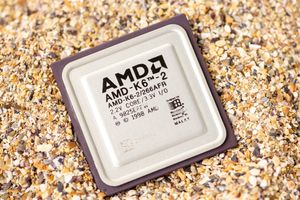NEW YORK, June 09, 2024 (GLOBE NEWSWIRE) -- Bragar Eagel & Squire, P.C., a nationally recognized shareholder rights law firm, reminds investors that class actions have been commenced on behalf of stockholders of Biogen Inc. (NASDAQ: BIIB), Charge Enterprises (NASDAQ: CRGEQ), and Fastly, Inc. (NYSE: FSLY). Stockholders have until the deadlines below to petition the court to serve as lead plaintiff. Additional information about each case can be found at the link provided.
Biogen Inc. (NASDAQ: BIIB)
Class Period: February 3, 2022 - February 13, 2024
Lead Plaintiff Deadline: July 22, 2024
Biogen is a global biopharmaceutical company that discovers, develops, and delivers therapies for people living with serious and complex diseases worldwide. The Company operates in various countries throughout the Americas, Europe, and Asia.
Biogen's products include, among others, Leqembi and Aduhelm for the treatment of Alzheimer's disease ("AD"), as well as various drugs for the treatment of multiple sclerosis ("MS"). Biogen's sales of its MS-related products have historically accounted for the majority of the Company's product revenues. However, in recent years, increased competition from generic biosimilars of Biogen's MS-related products have eroded those products' revenue growth and led to declining sales. As a result, the Company has increasingly focused on developing new products to bolster its revenues. Accordingly, because AD-related treatments represented a lucrative market for Biogen, the Company's AD-related products were particularly important to Defendants and investors throughout the Class Period.
In 2021, in a major set-back to the Company's development of AD treatments, Biogen was mired in controversy after investigative reports revealed that the Company had engaged in potentially improper communications with representatives of the U.S. Food and Drug Administration ("FDA") to win regulatory approval of Aduhelm for the treatment of AD, despite concerns regarding, inter alia, the drug's safety and efficacy. Biogen and the FDA's communications and conduct have been the subject of investigations by the U.S. Federal Trade Commission, the U.S. Securities and Exchange Commission ("SEC"), multiple Congressional Committees, and the Office of the Inspector General of U.S. Department of Health and Human Services.
Nor were the foregoing investigations the only source of controversy for Biogen. Separately, in 2022, the U.S. Department of Justice ("DOJ") announced that Biogen had agreed to pay $900 million to settle allegations that it had caused the submission of false claims to Medicare and Medicaid by paying kickbacks to physicians to induce them to prescribe the Company's MS-related drugs.
Following these controversies, Biogen embarked on a campaign to purportedly enhance its transparency, corporate governance, and compliance controls and procedures. Among other things, the Company replaced its Chief Executive Officer ("CEO") in November 2022 and has since released compliance, corporate responsibility, and environmental, social, and governance reports touting the Company's purportedly enhanced compliance and governance practices.
Moreover, the controversy surrounding Aduhelm's regulatory approval has, at least in part, led to the drug's failure to gain traction in the lucrative AD-treatment market. Accordingly, Defendants and investors have been particularly focused on the launch of the Company's Leqembi product, developed in partnership with Eisai Co., Ltd. ("Eisai"), which gained FDA approval as a treatment for AD in 2023. Biogen and Eisai set a goal of having 10,000 patients on Leqembi by the end of March 2024.
In February 2023, Biogen provided non-GAAP diluted earnings-per-share ("EPS") guidance in a range of $15.00 to $16.00 per share for full year ("FY") 2023, and reaffirmed this guidance over multiple quarters.
Then, in July 2023, Biogen announced that it would acquire Reata Pharmaceuticals, Inc. ("Reata") for $172.50 per share in cash, reflecting an enterprise value of approximately $7.3 billion (the "Reata Acquisition"). The Reata Acquisition represented yet another important opportunity for Biogen to strengthen its product portfolio and offset declining MS-related treatment sales with the acquisition of Reata's drug Skyclarys, which had been approved in U.S. as the only treatment indicated for patients with Friedreich's ataxia. Biogen represented that the Reata Acquisition would only be "slightly" dilutive to Biogen's non-GAAP diluted EPS in 2023.
The Complaint alleges that, throughout the Class Period, Defendants made materially false and misleading statements regarding the Company's business, operations, and compliance policies. Specifically, Defendants made false and/or misleading statements and/or failed to disclose that: (i) Biogen had overstated its efforts to enhance its transparency, corporate governance, and compliance controls and procedures, as well as the efficacy of those controls and procedures; (ii) accordingly, Biogen maintained inadequate compliance controls and procedures in connection with its business operations in foreign countries; (iii) Biogen and/or its employees were engaged in unlawful or otherwise improper conduct in several foreign countries; (iv) the foregoing subjected the Company to a heightened risk of governmental and/or regulatory scrutiny and enforcement action, as well as significant legal, financial, and reputational harm; (v) Biogen overstated the strength of its AD-related product portfolio, including the Company's and Eisai's efforts and success in launching and providing access to Leqembi; (vi) Biogen also downplayed the negative impact that the Reata Acquisition would have on its FY 2023 non-GAAP diluted EPS; (vii) all the foregoing were likely to have a significant negative impact on Biogen's 2023 results; and (viii) as a result, the Company's public statements were materially false and misleading at all relevant times.
On November 8, 2023, Biogen announced its third quarter 2023 results, including negatively revised non-GAAP diluted EPS guidance for FY 2023 in a range of $14.50 to $15.00 per share, significantly below its previous guidance of FY 2023 non-GAAP diluted EPS of $15.00 to $16.00 per share, citing approximately $0.75 of dilution from the Reata Acquisition.
On this news, Biogen's stock price fell $13.92 per share, or 5.67%, to close at $231.69 per share on November 8, 2023.
On January 8, 2024, Biogen's CEO Defendant Christopher A. Viehbacher ("Viehbacher") attended the J.P. Morgan 42nd Annual Healthcare Conference. While speaking at the conference, Defendant Viehbacher discussed challenges with the launch of Leqembi and walked back prior expectations of having 10,000 patients on the drug by the end of March 2024.
As the market digested this news, Biogen's stock price fell $10.77 per share, or 4.17%, over three consecutive trading days to close at $247.21 per share on January 11, 2024.
On January 31, 2024, Biogen announced that it was discontinuing development and commercialization of Aduhelm and "has recorded a one-time charge of approximately $60 million related to close out costs for the program in the fourth quarter of 2023."
On February 6, 2024, news reports emerged that Eisai was facing challenges with the launch of Leqembi and that only 2,000 patients in the U.S. had been administered the drug.
As the market fully digested this news, Biogen's stock price fell $5.01 per share, or 2.04%, to close at $240.54 per share on February 7, 2024.
Then, on February 13, 2024, Biogen issued a press release announcing its fourth quarter ("Q4") and FY 2023 results, including Q4 non-GAAP EPS of $2.95, missing consensus estimates by $0.23, and Q4 revenue of $2.4 billion, missing consensus estimates by $60 million and representing a 5.5% year-over-year decline. The Company disclosed that Q4 "GAAP and Non-GAAP diluted EPS [was] negatively impacted by $0.35 related to [the] previously disclosed closeout costs for ADUHELM[.]" Moreover, on a subsequent conference call to discuss these results with investors and analysts, Defendant Viehbacher confirmed that "we've got approximately 2,000 patients on [Leqembi] at the moment" and that "we have an indication that there are about 3,800 patients as of last week on the registry"—a far-cry from the 10,000-patient goal set by the Company and Eisai for the end of following month.
The foregoing disappointing results surprised investors and analysts alike, prompting multiple analyst downgrades from major financial firms in addition to a deluge of negative press publications covering these results.
Following these developments, Biogen's stock price fell $18.09 per share, or 7.39%, to close at $226.65 per share on February 13, 2024.
Finally, on February 14, 2024, Biogen disclosed in an SEC filing that it had received a subpoena from the DOJ "seeking information relating to [Biogen's] business operations in several foreign countries" and that "[t]he Company is also providing information relating to [its] business operations in several foreign countries to the SEC."
On this news, Biogen's stock price fell $5.91 per share, or 2.61%, to close at $220.74 per share on February 14, 2024.
For more information on the Biogen class action go to: https://bespc.com/cases/BIIB
Charge Enterprises (NASDAQ: CRGEQ)
Class Period: December 15, 2021 - February 28, 2024 (Common Stock Only)
Lead Plaintiff Deadline: July 28, 2024
Charge is an electrical, broadband, and electric vehicle (“EV”) charging infrastructure company. Its business, including through its various subsidiaries, has two primary segments: infrastructure, which has a focus on EV charging stations and wireless network Case 1:24-cv-04056 Document 1 Filed 05/28/24 Page 5 of 32 6 communications; and telecommunications, which provides connections for voice calls and data to global carriers.
The complaint alleges however, the events that give rise to this Class Action are not connected to Charge’s primary business ventures or revenue streams, but rather stem from reckless oversight of Charge’s capital and materially misleading statements and omissions in connection therewith.
Charge Enterprises initially incorporated under the name “E-Education Network, Inc.” in 2003 and changed its name to GoIP Global Inc. (“GoIP Global”) in 2005. In April 2020, GoIP Global acquired Transworld Holdings, Inc. In August 2020, GoIP Global changed its name to Transworld Holdings, Inc. In January 2021, Transworld Holdings, Inc. changed its name to Charge Enterprises, Inc.
Following this series of corporate transactions, Charge was uplisted with the NASDAQ Stock Exchange on April 12, 2022 with the ticker symbol “CRGE.”
Since at least the fourth quarter of 2020, Charge and its predecessor entities have employed KORR Acquisitions, a registered investment advisor controlled by Orr and Cori Joy Orr, to manage certain of its investments and excess liquidity.
On June 19, 2020, GoIP Global disclosed that it “intends to engage KORR Acquisitions Group, Inc. as a consultant to provide certain consulting and advisory services to GOIP for fees to be agreed upon. Kenneth Orr, Director, President and Chief Financial Officer of [GoIP], is Principal Operating Officer of KORR Acquisitions Group, Inc. KORR Acquisitions Group, Inc. is managing member of KORR Value, LP.”
During the fourth quarter of 2020, GoIP Global and KORR Acquisitions entered into what Charge described as an “informal at-will arrangement” under which the Company entrusted KORR Acquisitions to “provide investment advisory services on an as-needed basis” (the “Informal Arrangement”). Specifically, Charge granted KORR Acquisitions “discretionary authority, without prior consultation with the Company, to buy, sell, trade and allocate in and among stocks, bonds and other securities and/or contracts relating to the same,” on an “as-needed basis.” The Company stated that the value of the assets it invested with KORR Acquisitions under the Informal Arrangement “shall not exceed 20% of the Company’s total assets.”
On December 15, 2021, before Charge was uplisted to NASDAQ and while its common stock was still trading over the counter, the Company’s registration statement (filed on December 10, 2021 on Form S-1), became effective. The Registration Statement described the Informal Arrangement as an “at-will” agreement for KORR Acquisitions to invest in “marketable securities” on the Company’s behalf. The Registration Statement reiterated that the investments were limited to “20% of our assets, and of that, less than 5% in illiquid assets,” and stressed that “[w]e continuously monitor and review the value of our investments, including, but not limited to conducting a mark-to-market valuation of our investments on a weekly basis, and, if ever we exceed 20%, we will liquidate marketable securities to stay within our intended maximum investment of 20% of our total assets.”
Before its uplisting on NASDAQ, Orr was the single largest stockholder in Charge, controlling more than eighty percent of the Company. However, in connection with that uplisting, NASDAQ and the SEC raised a number of questions regarding Orr’s involvement with Charge, particularly his having a majority ownership in the Company, his position as the Chairman of the Board of Directors, and the Informal Arrangement with the Company.
Given NASDAQ and the SEC’s concerns, Orr accordingly divested his interest in Charge to less than ten percent beneficial ownership of the Company, and stepped down as the Chairman of the Board of Directors effective September 14, 2021.
Charge and KORR Acquisitions operated under the Informal Arrangement until June 2022, at which time they entered into a written Special Advisor Agreement whereby KORR Acquisitions agreed to “manage the Company’s investment account” in exchange for a $500,000 up-front payment and a monthly payment of $25,000. The agreement had a term of 1 year.
In early to mid-2023, Charge informed Orr that it would require the return of certain Company funds to satisfy certain Company liabilities that were to come due and payable on in November 2023. Specifically, in April 2023, Denson informed Orr that the Company would require the complete return of its invested funds by November 1, 2023 to address (1) certain accounts payable of its subsidiary, PTGi International Carrier Services, Inc., and (2) the outstanding debt due to its senior lender, Arena Investors, LP (“Arena”).
Charge’s obligations to Arena, which were to become due and payable on November 19, 2023, were structured under two securities purchase agreements (the “Arena Notes”). In total, Charge had an outstanding principal balance of $27.8 million due under the Arena Notes. In addition, Charge had a number of other outstanding debt obligations under other loan agreements that, while not immediately due in November 2023, contained cross-default provisions.
Between May and November of 2023, Charge communicated frequently with Orr about the need for Orr and KORR Acquisitions to return the funds the Company had invested with KORR Acquisitions to enable the Company to satisfy its various debt obligations.
In May 2023, Denson emailed Orr requesting the full withdrawal of Charge investments held by KORR Acquisitions.
Orr and KORR Acquisitions did not return the funds as requested to do so in May. Schweller emailed Orr on July 25, 2023 requesting the immediate return of $10 million from the Company’s investment accounts.
Despite its previous requests for the return of Company funds, as of August 22, 2023, Charge still had $14 million invested with and under the management and control of KORR Acquisitions. On that date, Denson again communicated with Orr about a schedule for Orr and KORR Acquisitions to return the Company’s invested capital. Under the drawdown schedule devised that day, Orr was to return to Charge $3 million by the first week of September 2023, $3 million between September 15-30, 2023, $6 million between October 15-30, 2023, and the remainder between November 1-10, 2023. None of this – including that prior requests had been made and ignored, nor the drawdown schedule – was disclosed to investors.
Orr and KORR Acquisitions failed to abide by this drawdown schedule. Despite agreeing to return a total of $6 million in September, Orr and KORR Acquisitions had only returned $2.25 million by the end of that month. Further, and despite their agreement to return $6 million in October, Orr and KORR Acquisitions only returned $1.75 million of Company funds in October 2023. Thus, by the end of October, and despite agreeing to return $12 million of Company funds by the end of October, Orr and KORR Acquisitions had only returned $4 million.
On November 1, 2023, Denson emailed Orr, reminding him that Charge’s “loan with Arena is due this month . . . we need the Charge money returned ASAP this week.” Orr did not respond to this email in writing.
On November 2, 2023, Denson and Orr spoke on the phone to discuss Orr and KORR Acquisitions’ failure to adhere to the original drawdown schedule. On that call, Orr proposed a revised drawdown schedule, offering to return $1 million by the end of the day, $3 million on November 6, $3 million on November 14, and the remainder by the “end of 2023, or perhaps in 2024.”
On November 3, 2023, Denson reiterated to Orr the need for an expeditious return of the funds, and that Charge was experiencing financial harm as a result of Orr’s failure to return the funds, which could impact the Company’s ability to continue as a going concern. That same day, Denson and Orr discussed a third drawdown schedule: $1 million on November 3, $3 million early in the week of November 6, and $6.75 million by November 13 or 14. Defendants did not cause Charge to inform investors of these developments either.
Despite the various drawdown agreements, Orr only returned $800,000 on November 3, and $200,000 on November 6.
Thus, by early November, 2023, after months of failing to receive the requested Company funds from Orr and KORR Acquisitions, Defendants knew that Charge was facing serious undisclosed liquidity problems. As Denson reminded Orr, these funds were “critical to [Charge’s] liquidity,” despite the Company’s representation several weeks prior that it had more than $51,000,000 in cash and cash equivalents. Defendants therefore knew and understood that, if Orr and KORR Acquisitions failed to return the Company funds as requested, a default on the Arena Notes was nearly certain, and that this would lead to an “imminent cascade of negative consequences,” namely, the invocation of cross-default provisions in the Company’s other debt instruments.
But, as described below in further detail, Defendants continued to paint a rosy picture of Charge’s financial condition throughout the fall of 2023, despite knowledge that the funds held by KORR Acquisitions were “critical” to the Company’s liquidity. In fact, as late as November 8, 2023, Charge expressed its expectation “to have sufficient resources to meet [its] current operating liquidity and capital requirements for the next 12 months.”
The complaint states that the situation came to a head on November 13, 2023, when Orr advised Biehl that the Company’s funds were invested in KORR Value, a limited partnership whose General Partner is KORR Acquisitions. And, as Orr advised Biehl, the terms of the KORR Value Limited Partnership Agreement, dated May 9, 2020, make Charge a limited partner in KORR Value and grant to KORR Acquisitions, as General Partner, the “sole and absolute” right to limit redemptions of limited partnership interests. In accordance with KORR Value’s Limited Partnership Agreement, Orr informed Charge that KORR Acquisitions would be unable to return the requested funds because they were “cross-collateralized” with other accounts and that those accounts were “under water.”
Charge first informed the market of the dire situation it faced on November 21, 2023 in a Form 8-K filed with the SEC. Despite its announcement that it had more than $51,000,000 in cash several weeks prior, the Company stated that it had received a default notice from Arena, and announced that its prior belief that it had “approximately $9.9 million of Company assets . . . in the form of cash, cash equivalents, marketable securities or similar readily liquid assets” was false; instead, these funds had actually been invested in KORR Value and were thus “not immediately able to be liquidated or readily accessible.” The Company further warned that if it “continues not to have sufficient liquidity to pay the principal and interest on the [Arena] Notes . . . these circumstances could result in a default under other of the Company’s debt instruments and agreements that contain cross-default provisions.” As the Company explained, this situation would likely “have a material adverse effect on the Company’s liquidity, financial condition and results of operations, and may render the Company insolvent and unable to sustain its operations and continue as a going concern.”
On December 6, 2023, in a Form 8-K filed with the SEC, Charge informed the market that it had received several additional default notices from Arena. The December 6, 2023 8-K further stated that the Company was ceasing the operations of certain of its telecommunications subsidiaries in an effort to preserve liquidity.
On January 25, 2024, in a Form 8-K filed with the SEC, Charge informed the market that the Company had received a foreclosure notice from Arena stating that, to satisfy the Company’s outstanding indebtedness, Arena would be holding an auction, pursuant to the Uniform Commercial Code, to liquidate 100 percent of the equity interests in certain Charge subsidiaries at auction.
On February 28, 2024, in a Form 8-K filed with the SEC, after months of restructuring efforts, Charge announced that it had entered into a Restructuring Support Agreement with two affiliates of Arena, which was to be implemented through the commencement of a voluntary Chapter 11 case in the U.S. Bankruptcy Court for the District of Delaware.
On February 29, 2024, NASDAQ suspended trading of Charge common stock.
On March 7, 2024, Charge filed its voluntary petition for bankruptcy under Chapter 11. See In re Charge Enterprises, Inc., Bankr. Case No. 24-10349 (Bankr. D. Del.).
According to the filed complaint, during the Class Period, Defendants issued materially false and misleading statements regarding the nature of Charge’s relationship with KORR Acquisitions, the degree of control that KORR Acquisitions exercised over Charge assets that were “critical” to the Company’s liquidity, and the nature of the investments that KORR Acquisitions held on the Company’s behalf, as well as materially false and misleading statements about the Company’s risk policies, procedures, and compliance oversight functions, exposing the Company and its investors to substantial losses.
For more information on the Charge class action go to: https://bespc.com/cases/CRGEQ
Fastly, Inc. (NYSE: FSLY)
Class Period: February 15, 2024 - May 1, 2024
Lead Plaintiff Deadline: July 23, 2024
Fastly operates an edge cloud platform for processing, serving, and securing customer's applications. The edge cloud is a category of Infrastructure-as-a-Service that purportedly enables developers to build, secure, and deliver digital experiences. Fastly's platform includes a Content Delivery Network ("CDN"), or a geographically distributed network of proxy servers and their data centers. Content owners such as media companies and e-commerce vendors pay CDN operators to deliver their content to their end users. Certain companies have adopted a "Multi-CDN" framework which combines multiple CDNs from various providers into one large global network.
In 2023, a "consolidation trend" emerged in the CDN industry, in which several prominent Multi-CDN companies reduced the number of CDN vendors they had previously managed in an effort to simplify their operations and increase efficiency, opting instead to manage fewer CDN vendors. Facing reduced competition, Fastly was able to materially increase its market share and drive favorable sequential growth.
On February 14, 2024, Fastly issued a press release providing full year ("FY") 2024 revenue guidance in a range of $580 million to $590 million. In that same press release, Fastly's Chief Executive Officer Defendant Todd Nightingale ("Nightingale") was quoted as stating, "[t]his quarter demonstrated the progress we've made in operational and financial rigor resulting in strong gross margins and non-GAAP net income," and "[o]ur go-to-market, packaging and channel efforts through 2023 delivered an inflection in our customer acquisition as we closed out the year. This positions us well for 2024, driving our mission to make every user experience fast, safe, and engaging."
According to the filed complaint, throughout the Class Period, Defendants made materially false and misleading statements regarding the Company's business, operations, and prospects. Specifically, Defendants made false and/or misleading statements and/or failed to disclose that: (i) contrary to its representations to investors, Fastly was in fact experiencing a significant deceleration in growth among its largest customers and was losing the increased market share it had gained as a result of the 2023 CDN consolidation trend; (ii) the foregoing issues were likely to have a material negative impact on the Company's revenue growth; (iii) accordingly, the Company was unlikely to meet its own previously issued revenue guidance for FY 2024; (iv) as a result, the Company's financial position and/or prospects were overstated; and (v) as a result, the Company's public statements were materially false and misleading at all relevant times.
On May 1, 2024, Fastly announced its first quarter ("Q1") 2024 financial results. Despite the Defendants' positive statements just three months earlier about Fastly's performance and near-term business prospects, the Company reported revenue of only $133.52 million, missing consensus estimates by $0.35 million. The Company also lowered its FY 2024 revenue guidance to a range of $555 million to $565 million, significantly below its previously issued FY 2024 revenue guidance of $580 million to $590 million, and likewise below consensus estimates of $584.62 million for the same period.
That same day, Fastly held a conference call with investors and analysts to discuss the Company's Q1 2024 results (the "Q1 2024 Earnings Call"). In explaining the Company's disappointing revised FY 2024 outlook, Defendant Nightingale stated that "[t]he biggest factor is a reduction of revenue from a small number of our largest customers. The first-quarter revenue from our top 10 customers dropped from 40% to 38%[,]" and that the Company saw "significant volatility" in the Multi-CDN strategy run by many of Fastly's top 10 accounts. Further, Fastly's Chief Financial Officer Defendant Ronald Kisling stated that the Company is "facing a challenging environment of revenue declines in our largest customers, overshadowing the impact of new customer acquisition and product pipeline[,]" and that the Company would not benefit in 2024 from the favorable impact of the early 2023 CDN consolidation that drove favorable sequential growth in the prior year same period.
Then, on May 2, 2024, Bank of America downgraded Fastly stock from a "Buy" rating to an "Underperform" rating and cut its price target on the stock from $18 per share to a mere $8 per share, noting that "[d]ecelerating growth in Fastly's largest customers, share loss in delivery, and limited visibility in 2H cause us to question a rebound in 2024," and that "[w]hile we continue to like Fastly's positioning in the edge compute market, we see it as a 2025 opportunity instead of a near-term growth driver."
Following these developments, Fastly's stock price fell $4.14 per share, or 32.02%, to close at $8.79 per share on May 2, 2024.
For more information on the Fastly class action go to: https://bespc.com/cases/FSLY
About Bragar Eagel & Squire, P.C.:
Bragar Eagel & Squire, P.C. is a nationally recognized law firm with offices in New York, California, and South Carolina. The firm represents individual and institutional investors in commercial, securities, derivative, and other complex litigation in state and federal courts across the country. For more information about the firm, please visit www.bespc.com. Attorney advertising. Prior results do not guarantee similar outcomes.
Contact Information:
Bragar Eagel & Squire, P.C.
Brandon Walker, Esq.
Marion Passmore, Esq.
(212) 355-4648
investigations@bespc.com
www.bespc.com







